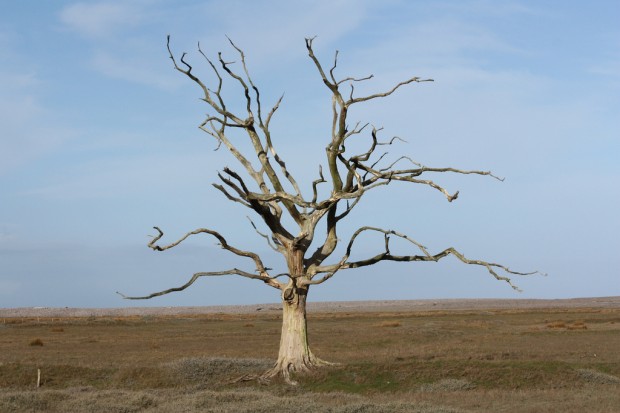You have no items in your cart. Want to get some nice things?
Go shopping
Oliver appears like a magician waiting in the wings, feral auburn hair gleaming orange marmalade in the light from the chandeliers. Our hubbub quietens to a murmur, then silence, and he begins. We are like springs bubbling up on the high moor, he says, carving channels deeper and deeper, swelling and joining together and gathering strength, crashing one thousand feet down the highest cliffs in England, rivers pushing past each other to get to the sea. Oliver stretches his arms out sideways. We are those mighty rivers, he says. We were forced out, but look how strong we are now. We clap and cheer, and he stands with chest heaving, one hand clasping the other wrist, head high and shoulders thrown back like a lion rampant. The roar of applause reverberates between stone floor and lofty scrolled ceiling. When it fades, he sings The Ash Grove in a beautiful lyrical tenor voice, pitch-perfect, that brings tears to our eyes. Everyone is connected. We have never known such love and openness.
We funnel up the stairs to the workroom, remove our shoes and sit on cushions in a circle. Oliver sits on a larger, plumper cushion at the head, with the mandatory respectful distance either side. Behind him the bay window extends from floor to ceiling, and beyond is the moor, the magic moor – Exmoor. Our toes burrow into the thick cherry-red carpet, and the Persian carpets on the walls cocoon us with their tulips and sickle leaves and Herati patterns in brilliant carmines and ultramarines and viridians while we wait for Oliver to begin. Oliver will transform all our lives. We work hard on ourselves. We labour and toil at examining ourselves to discover the gold in our hearts, and no one can steal our gold. It’s no primrose path, but Oliver is full of love. Everyone is full of love.
It was perfect until Elinor came. Elinor was difficult, demanded attention. At first we liked Elinor, secretly admired her for answering back. From the start she ignored his advice. He told her, you look like a bag lady in that dress, hideous. The dress was a bold floral print, large poppies on a white background, pinched at the waist and billowing out over her hips. We confirmed, you look like a bag lady, hideous, a moron, frumpy, but would she listen? And the baby. How can you have a child? Oliver said. You’re just a child yourself. Two hours it took us to convince her he was right. She would’ve had to go and live in the village with the other parents, she wouldn’t be one of us any more. She cried and cried, but in the end she realised. Oliver kindly arranged things, but she never stopped sulking afterwards. We tried to help because we cared about her. We are loving and open here, and we lead a truthful existence. We are glad Elinor’s gone.
When someone is difficult, they stand in the middle of the circle. Oliver starts and we all chip in. It takes hours, but we carry on because we are helping. We don’t like being in the middle, but we understand we are being helped. It upsets us, but afterwards there are warm hugs and we hold hands and sing Amazing Grace, because it is amazing. We were blind, but now can see.
On Saturday nights we light a fire on the hilltop near Titchworthy Barrows. We sing softly, then five women with burning wax torches step forwards and dance inside the circle, arms snaking, and the torches draw figures of eight in the dark, then they are thrust into the woodpile, which crackles and spits and heaves. The yellow tongues lick the air, a cry goes up and so does the fire. The blinds in the valley think we’re daft as the bats in the attic, we’ve overheard them gossiping when we run the market stall. They probably think it’s one of those fiery dragons seen flying and lighting on the barrows, but we have something special going here. We sing and sing, songs like Campfire’s Burning and Kumbayah, and the warmth and the singing lift our hearts, and everyone is connected.
Oliver conducts workshops all over the world, and goes hang-gliding and mountaineering. Rest is important, because he works so hard at home. It’s hard work listening to people, but for him the act of listening to us, loving us, is instinctive. We hate it when Oliver goes away, we huddle together like day-old chicks and cry, and spend all day in the workroom. We miss the warm timbre of his voice. The Persian rugs on the walls comfort us and the carpet cossets our bare toes, but we are unconsoled. We are suicidal. It was terrible when he had the accident. He was in a coma for three weeks. Twelve of us went in the minibus. They only allowed two at a time at his bedside. But we are his family, we said. We wailed when we saw his beautiful bush of auburn hair matted with black dried blood and his face red and bloated and mangled. We wailed at home. All day, every day, on and off we wailed. We were so lonely. He limped badly afterwards. So sad, because he is so caring and spiritual. We have never known such love and openness.
Except for Graham… Graham was difficult, a head case. He was drawn by the eco-friendly ethos, but he had big ideas. Who’s running this place? Oliver said. Oliver should never have let Graham move in. He clung to his family, he wouldn’t have deumbilicated in a million years. We all tried to help. Didn’t he want our help? He behaved like a baby. Oliver made him eat baby food and wear a nappy and Graham howled. But Oliver had to ask him to leave because he was disruptive, tried to talk to people behind our backs. He even demanded his money back. Oliver said he’d had more than his fair share of counselling. He left some of his clothes, and on Bonfire Night we used them to make the guy, with big red lipstick lips like a clown’s. Oliver said that young cockerel wouldn’t have had a clue without him. Whenever we apologised for anything afterwards, Oliver said we could never be as difficult as Graham.
We love the land. We don’t poison it and we don’t waste energy. With our bare hands we draw riches from it. Not for us the solitary farm life with all the work done by machine. We are a community and we love working the soil and tending the stock, even when the sheep get buried in snow on the high moor, we all pull together. Everything we do is done with love. There’s a waiting list for raw milk from our beautiful Red Rubies. In dry summers we form a fireman’s chain to water the crops, and in winter we restore the mires which our foolish predecessors drained with ditches, causing floods down below. The mud oozes black and slimy and freezes our fingers, but we love the land, we love the moor. It’s no primrose path. We replace conifers with native trees and we bottle spring water. At first we argued against all that plastic because we are a democratic community, but Oliver said we needed the money. And we promote the nightjar population. There are grants for all these things. Simon’s idea.
Simon was one of the original seven, salt of the earth, funny, but not as funny as Oliver. Oliver’s favourite joke is: “I have a soft spot for you ‒ it’s a peat bog on the moor.” We laugh every time. We laugh a lot here. But Simon… The blinds all know him because he grew up on Exmoor, and in the end that was the problem, we think. Blinds told him at market his father was ill, and one day a blind said his father was begging to see him. What if he dies? Simon said. What if he does? Oliver said. But Oliver let him visit his father, because he’s kind like that, then a few weeks later Simon left. Oliver was devastated. We were all devastated. Simon was like Oliver’s firstborn son. So cruel. We wonder if he misses us as much as we miss him. He’ll be helpless without us, he needs us, he’ll be all on his own. He needs our love and openness. People can’t cope when they leave.
We liked Eff at first. She fitted in, which was more than her husband Mark did. From the start he baulked at handing over his mobile, trying to claim he wanted it to tell the time. No need, we said, we use an elephant bell to call people in. There’s hardly any signal here anyway. Later we found he wanted it for a different purpose. Quite different. Not a nice purpose at all, not nice to Eff. We liked Mark the first time they came, but the second time he took against us. Oliver said he was full of sound and fury, signifying nothing. Good riddance, Oliver said. Good riddance, we said. Mark’s mind was closed, but we are open. We have never known such love and openness.
But Eff was different, we thought. Poor Eff, she had so much baggage, on top of Mark. Never mind, we are your friends, we said, you’ll always have us. But it’ll be no primrose path. We are not sure what went wrong. Even though she’d left Mark and moved in, Mark still persuaded her to leave. Or maybe it was her grandmother, she was the silent type, all polite to our faces, and probably criticising us behind our backs. Just like the rest of them, blind, deceiving themselves, riddled with problems because they don’t work on themselves, they don’t lead a truthful existence. We blame the grandmother and Mark. Or maybe it was because Eff was a teacher. At first we thought she was fun. She was lively, had us all singing and dancing and laughing when we dug the pond. Simon was singing Frère Jacques in time with the digging, then Eff tapped her spade on his on the beat, then others joined in, and in the end we were all banging and tapping spades and forks and wheelbarrows. Eff’s the champion, we told Oliver. Later he said that should have been a warning sign, when someone new is directive like that. She took over or tried to. We were sorry she left. Oliver thought she’d come back. It was a tragedy, seeing him so depressed for a long time. He’d failed her, he said, could have done more. He was terribly hurt. We were all terribly hurt. We tried so hard to help, but she didn’t work at it, she was difficult. Oliver said he should have known. We should have known she was always a blind.

About Judy Birkbeck
Judy Birkbeck has short stories in Unthology, Aesthetica, Mechanics' Institute Review, The Shadow Booth, Lighthouse and others. A novel, Behind the Mask is Nothing, is published by Holland House Books.
- Web |
- More Posts(2)




